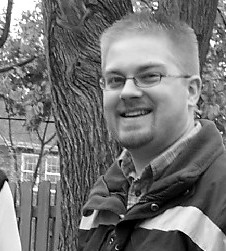So I was very grateful when CSMSG hosted two speakers to discuss the issue of stem cell research and human cloning; one from the scientific community (Dr. William B. Neaves of the Stowers Institute for Medical Research) and one from the religious/philosophical side (Dr. Robert P. George, of Princeton University and the President's Council on Bioethics.)
Neaves spoke for the amendment and the research. He noted that the most common objection to embryonic stem cell research is that it destroys human embryos, which if left alone become small humans. But this isn't as serious a problem as we all think, Neaves went on, because in normal human reproduction, a much higher number of potential humans, in the form of eggs and sperm cells, die naturally, and a similar number are lost during the many attempts necessary for a successful in vitro fertilization, a process most peolple have grown used to. IVF was Dr. Neaves' analogy through the whole talk, and he frequently reminded us that when it was new, people had equally strong objections to it as they do now to the idea of stem cells.
George approached the issue from the moral and spiritual side, though he said up front that he didn't in fact speak for God or completely know God's will. For some in the audience, since they'd come expecting to hear what God's will was, this was a disappointment, but Dr. George quickly moved into his own territory. Of course eggs and sperm cells die naturally, he told us, but when they're living in their parent bodies, those cells are only parts of the original body, not new entities in themselves. But as soon as the two cells combine in the mother's body, they become a unique, new organism-- an embryonic human person, with complete and unique DNA and a complete and unique life path. And since that new life is not any longer just a part of a parent body, but a life of its own, he deserves the same protection and reverence that we hold for a fully-grown human person.
The largest question we can ask, considering how many enterprises (abortion, war, the clash of religious ideology, event politics) are trying to justify or normalize death on one side to preserve or improve life on the other, is this: Can anything that causes death, no matter of who or what, truly be in accord with God's will?
The Biblical evidence is clear on both sides.
- In the beginning God made living things and called them good. He warned his new creatures "Live life joyfully; just don't do this one thing (sin) that will cause your death. It's clear God wanted His people to live.
- But as the Hebrew people became a nation under God's especial care, they were often told "Go into this land or that land and kill everything there, because those people will kill you and scatter God's people if you don't." In fact, more than one king lost his anointing because he failed to kill enough.
- Jesus told us "I have come that you might have life, and have it more abundantly." On several occasions, Christ and later his disciples raised people from the dead.
- But in order to save our souls, it was necessary that Christ's body die. On the other hand, God also gave Jesus his life back.
In our parish we've had several notable funerals in the last couple of months. Families in our youth program have lost grandparents and parents, and I've been to several of the services, and once again I've noticed that Christians are called to think differently about life and death. We are called to love life of every kind. We are also called to lose it; that's part of our destiny. But that loss for us does not have to be a source of fear or panic, because it is not the end of the story.
Much of the furor stem cell research is causing is because the world is preoccupied with death. If all you have is this one brief lifetime, after all, (as those without Christ believe) you feel powerfully drawn to extend it however that's possible. And since humans are both sinful and selfish, extending my life at the expense of one that may have never really begun (as the proponents of the research will try and convince) doesn't seem that high a price.
Science is part of our system, and a gift from God, but it is not the be-all, end-all. Death is part of our system, and a consequence of our not being able to make perfect choices, but it is not the be-all, end-all either. And I do not fear it, although it makes my heart beat a little faster just to type those words.
For the record, I am opposed to embryonic stem cell research and any other form of scientific life-extending that destroys human lives, however small or undeveloped. Our mission as Christians is much different than the scientific community's, although we can work together on many issues. Our job is to spread the Good News in such a way that the fear of death is unnecessary. Our job is to create a system that respects life from its very beginnings to its eternal end, that relishes every stage of our own lives, and that welcomes rest in Heaven when we have spent the time God gave us in service to our fellow humans. I don't need a day beyond what God has decided to grant to do that.


1 comment:
Isaac:
Great post on a difficult subject.
Mark
Post a Comment